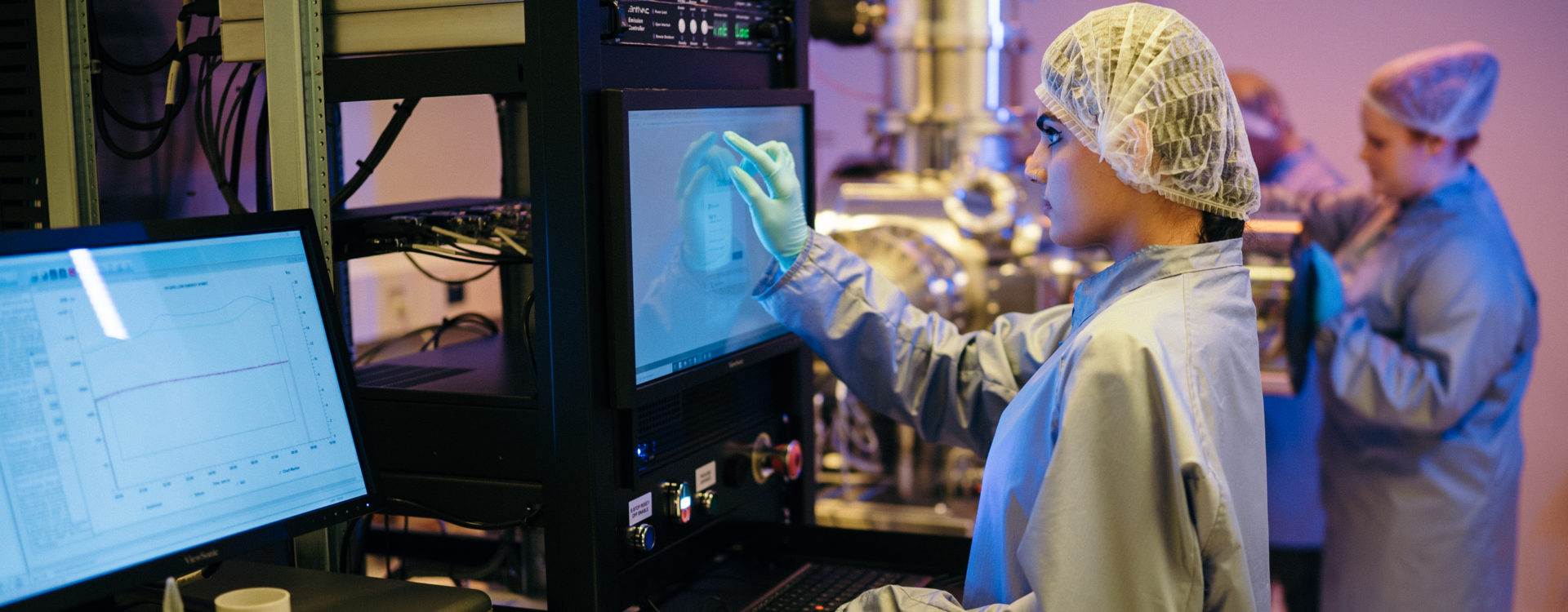Venturing into the quantum world
Despite facing stumbling blocks, Ritika Bazzad has retained the resolve she needed to build a career at the forefront of quantum technology.


The past seven years have seen a flurry of challenges for Ritika Bazzad, 22. Despite this, she’s overcome obstacles – including a global pandemic – and is now deep into a PhD in one of the most exciting scientific fields in the world: quantum materials.
Her first obstacle was integrating into a new country halfway through a school year; when she arrived in Australia from her native India in 2014 and, due to the different start dates for academic years, she had to repeat Year 10: “That really upset me!” she exclaims.
Then there was the culture shock: differences in food, transport, accents, lifestyles, and terminology. This was disorienting enough, but it was also coupled with being away from her tight circle of friends and having to make new ones – while also trying to adapt to an unfamiliar academic regime in Years 11 and 12 that relied on essays rather than a battery of intense exams.
“My teachers were really supportive, but learning to write essays well, and the social side – having no common background with friends or common things in your childhood – that was all really hard.” Ritika credits her love of maths with saving her: “Since childhood, I’ve always been interested in puzzles and LEGO; and to me, maths is just that – puzzles.”
After graduating high school, her father – an economics PhD – suggested Ritika consider science, leading to an applied physics degree at the University of Technology Sydney (UTS). “When people think of maths, they usually think of accounting, finance or business. But there's also physics, where you can make discoveries that really change the world. What attracts me to physics and quantum research is the promise it holds for the future. There’s obviously maths in it, but the physics is just cool.”
Then she heard about Sydney Quantum Academy (SQA), a partnership between four universities – Macquarie University, University of Sydney, UNSW and UTS – backed by the NSW Government. SQA provides scholarships, career development and a thriving local community of young researchers. While she missed out on a paid scholarship, she did qualify for a PhD Experience Scholarship, with access to career development and entry to the SQA PhD Experience program.
"SQA has been really cool. It feels like a family...that’s the thing that keeps you going and keeps you motivated, and you feel like you are not alone."
Ritika Bazzad
SQA’s unique PhD Experience program allows students to pick up technical expertise, leadership, and other transferable skills by taking part in the same seminars, workshops, and coursework as those on scholarships with a stipend. And they get to experience the cutting edge of quantum science and technology from both a theory as well as a practical perspective.

Ritika’s research – in the Quantum Materials and Photonics Team at UTS under Professor Igor Aharonovich – is focused on nanomaterials, artificial structures just billionths of a metre in size; at that scale, matter displays quantum effects that can be manipulated. She is experimenting with hexagonal boron nitride (or hBN) crystals so they can better emit single photons (or particles of light). If it can be perfected, it could lead to semiconductor chips just one atom thick, opening the door to advanced 2D quantum state engineering.
“My research is optimising hBN growth conditions, so these emitters are more stable but still very bright,” she enthuses. “I think it’s really important and has a lot of scope for the future if we get it right.”
Ritika enjoys the networking across universities and industry that SQA provides, and is an active member of the SQA Student Committee. “SQA has been really cool. It feels like a family… that’s the thing that keeps you going and keeps you motivated, and you feel like you are not alone. We’re organising online events and talks, which is really fun. I think that’s what kept me going through the pandemic.”
– Wilson da Silva
Quantum Research at the University of Technology Sydney
UTS is home to strategic research initiatives such as the UTS Centre for Quantum Software and Information (QSI). QSI is Australia’s leading research centre focussed on the software and information processing infrastructure for quantum technologies. Researchers and PhD students work with industrial and academic partners across the entire quantum software stack: from developing new methods to design and program quantum algorithms and applications; to perfecting the quantum control and error correction routines used by experimental teams such as those using UTS’ new Millikelvin Quantum Science Laboratory. UTS also conducts quantum technology research through its nodes of the Australian Research Council Centre of Excellence for Transformative Meta-Optical Systems (TMOS), including the UTS research group ‘Quantum Materials and Devices’.
Want to pursue a quantum PhD?
Check out our PhD scholarships now to see if you're eligible for funding. You could study with world-leading experts at one of our partner universities, including the University of Sydney, UNSW, UTS and Macquarie University.